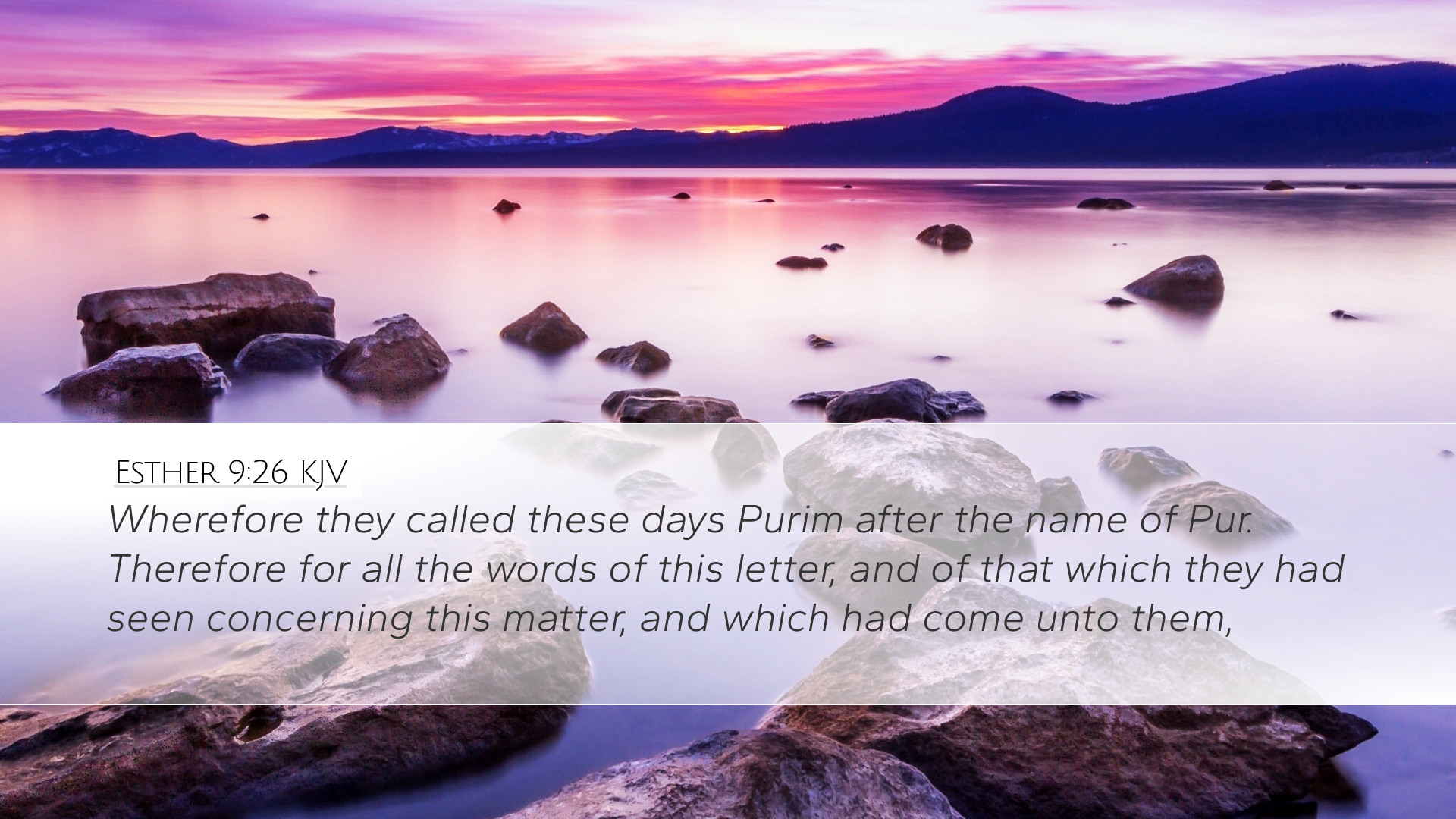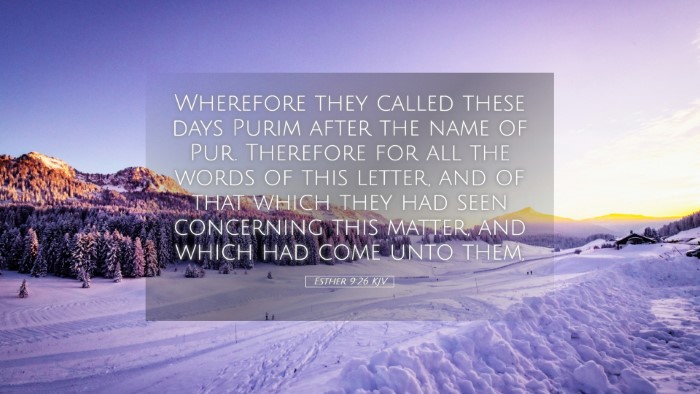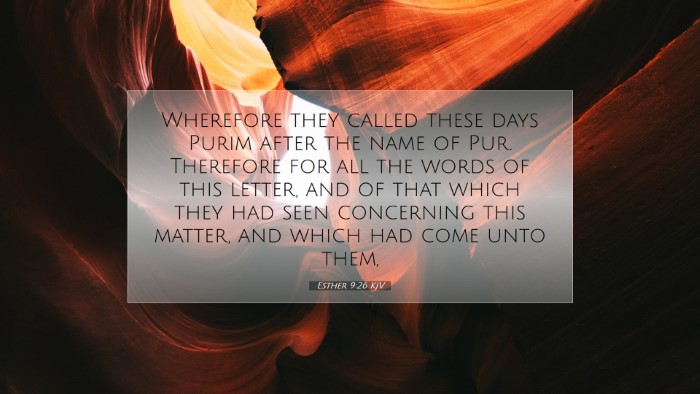Bible Commentary on Esther 9:26
Esther 9:26 reads: "Therefore they called these days Purim, after the name of Pur." This verse marks the establishment of an annual celebration among the Jewish people to commemorate the deliverance they experienced through the events narrated in the Book of Esther.
Significance of "Pur" and the Festival of Purim
The term Pur is derived from the Persian word meaning "lot." This reflects the method by which Haman determined the date for the planned extermination of the Jews, as he cast lots to decide on the day of their destruction. The irony present in this name signifies that what was intended for evil culminated in deliverance and joy.
Historical Context
In analyzing the context provided by Matthew Henry, we see the importance of this verse lies not only in its literary contribution but also as a theological reflection on God’s providence. Esther and Mordecai’s actions, coupled with divine orchestration, led to a remarkable reversal of fortune for the Jewish people.
Establishment of Purim
According to Adam Clarke's commentary, the Jews' establishment of Purim serves as a national remembrance of their deliverance. The festival is significant in that it encourages the community to reflect on their history and maintain the sacred memory of God's intervention on their behalf. Clarke emphasizes the joy associated with the festival, noting its intended function to promote unity among the Jewish people.
Theological Insights
The theme of divine intervention is central in Esther 9:26. Albert Barnes notes that the acknowledgment of God's hand in the events surrounding the festival demonstrates the Jewish community's recognition of their dependence on divine providence. The celebration of Purim is thus a means of strengthening their faith and remembrance of God's past faithfulness.
Faith and Trust in God’s Plan
This verse and its subsequent implications highlight the importance of faith amid adversity. As the lot was cast against them, the Jews were brought to a point of desperation, yet their deliverance—resulting in the festival of Purim—serves as a testament to God's ultimate authority over circumstances. This reflection is meaningful for pastors and theologians as it encourages congregations to trust in God’s plan regardless of how dire situations may appear.
The Role of Community in Remembrance
Another critical insight from Matthew Henry relates to the communal aspect of the festival. Purim is not merely a personal remembrance; it is a collective celebration of identity as a people saved by God. The discourse on how events that shape a community should be commemorated is particularly relevant for churches and religious organizations today.
- Unity: The festival encourages Jewish unity and remembrance of shared history.
- Identity: It reinforces the identity of the Jewish people in their covenant relationship with God.
- Witness: The celebration serves as a witness to God's faithfulness, pointing to His providential care.
Conclusion
Esther 9:26 encapsulates a pivotal moment in Jewish history, introducing Purim—an enduring celebration of salvation and community. This commentary elucidates themes of divine providence, the power of remembrance, and the significance of community in faith. For pastors, students, and scholars alike, the ramifications of this verse extend beyond the historical narrative; they invite sincere reflection on God’s faithfulness and the importance of collective identity in the realm of faith.


